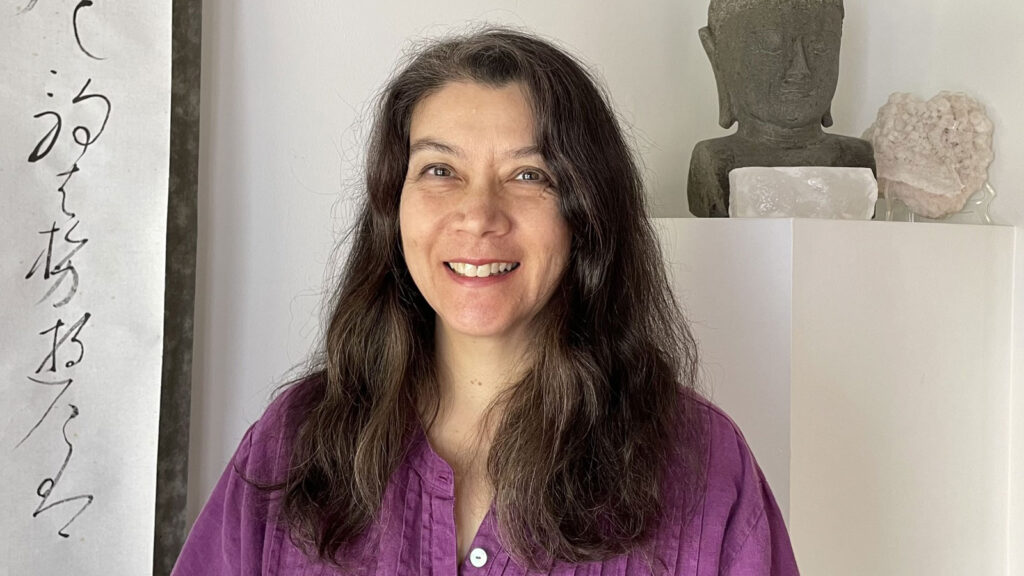NUNM alum and postdoctoral researcher shares how qigong could serve as an accessible, affordable rehabilitation therapy for MS.

With the National University of Natural Medicine (NUNM) gearing up to host Research Week from April 29 to May 3, we’re shining a spotlight on the work of our researchers.
Lita Buttolph, Ph.D., DSOM, MS, L.Ac.
Post-Doctoral Research Fellow, NIH R90 Building Research across Inter-Disciplinary Gaps (BRIDG) program; Helfgott Research Institute
NUNM degrees: Doctor of Science in Oriental Medicine; Master of Science in Integrative Medicine Research; 2018
Hometown: Los Angeles, California
What are your research interests?
My research interest centers around understanding how Traditional East Asian Medicine practices, including Qigong/Tai Chi and acupuncture, can benefit people with neurological disorders. My passion for this research began as a Qigong student and instructor, where I experienced tremendous benefits in my own health and worked with several students with neurodegenerative disorders. My career in science began as an ecologist, with Ph.D. in rangeland ecology and professional work investigating the socioeconomic impacts of natural resource management on forest-dependent communities. Although I enjoyed this work, my heart was drawn toward Traditional East-Asian Medicine.
I eventually made a career change and enrolled in the Classical Chinese Medicine doctoral program at the National University of Natural Medicine (NUNM). My love of research prompted me to also pursue a Master of Science in Integrative Medicine Research at NUNM. My graduate thesis involved studying the potential benefits of Qigong for people with multiple sclerosis (MS), a population that has been understudied for this intervention.
After completing my doctoral and master’s programs, I started a small private practice as a licensed acupuncturist but continued to pursue opportunities in research. I worked at NUNM as a research coordinator for two years and then applied for a postdoctoral fellowship through the BRIDG program, a three-year clinical research training program.
How are you putting your research interests into practice?
I’m in my final year of the BRIDG postdoctoral fellowship and have loved the experience. I continue to conduct research on Qigong for people with MS through national surveys, focus groups, and learning how to use body-worn motion sensors to detect subtle changes in mobility. I am also writing grants to the National Institutes of Health and private foundations to support the continuation of this research. I continue to have a part-time acupuncture practice while also conducting research.
I hope that my research will help build a knowledge base around how gentle, mind-body interventions, such as Qigong, can serve as an easily accessible and affordable rehabilitation therapy for people with MS. Additional implications of my research include developing methodologies on how Qigong can be tailored to and optimized for different disease populations.
Why is NUNM a good place to do research?
NUNM has been an excellent place to study and conduct cutting-edge research on complementary and integrative medicine and health. The research investigators at NUNM are top-notch, and the program is exceptional. In addition to the high-quality researchers, the small, tight-knit community allows for tremendous support and guidance.
The lab and research facilities are well-equipped to conduct studies in natural medicine, and the faculty members are closely connected to top researchers across the United States and internationally.
Thanks to the guidance of my mentors at NUNM, I have developed additional mentorship connections at other institutions including Harvard Medical School and Oregon Heath and Science University. These mentorships have further enhanced my research training and fostered collaborative partnerships